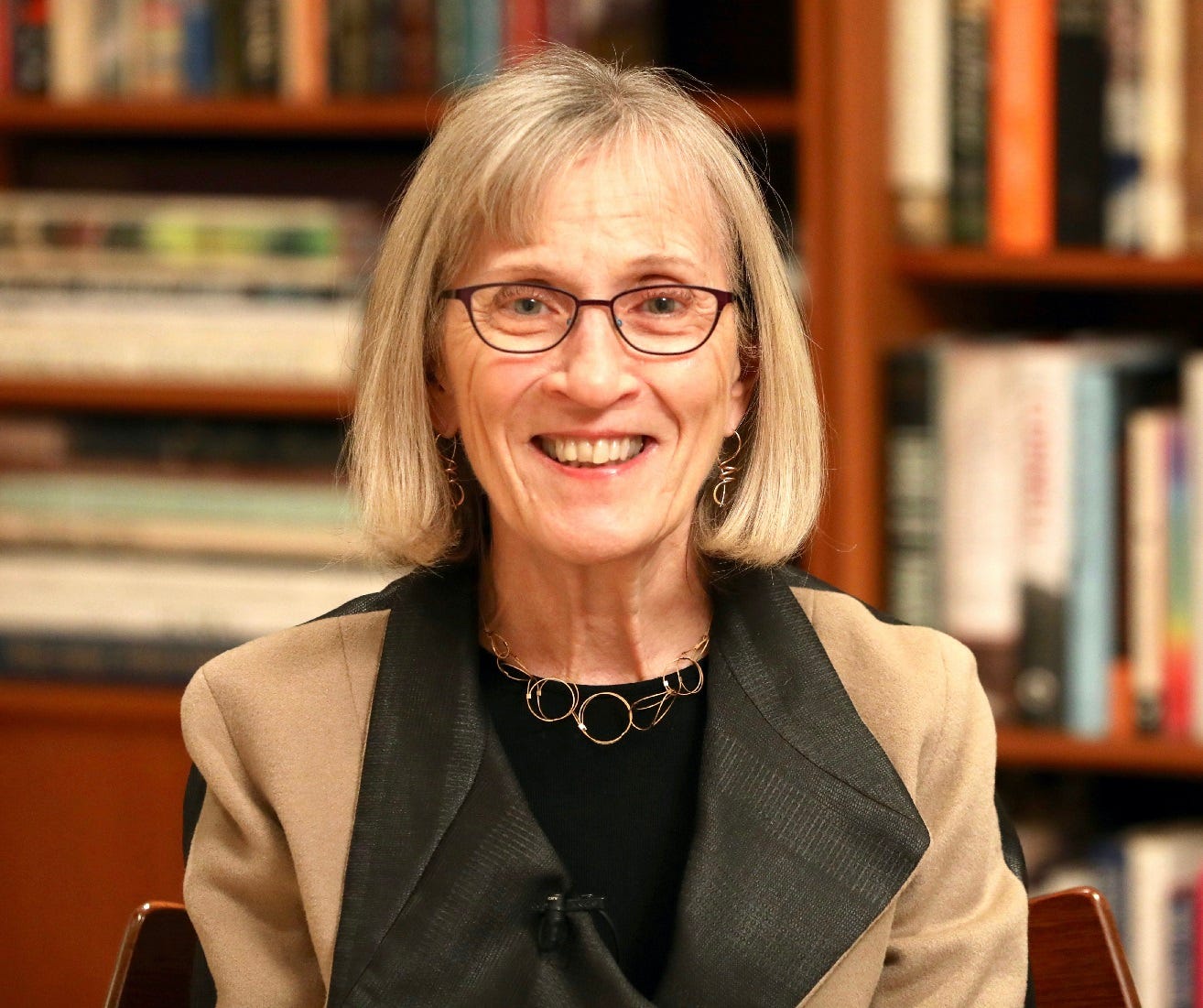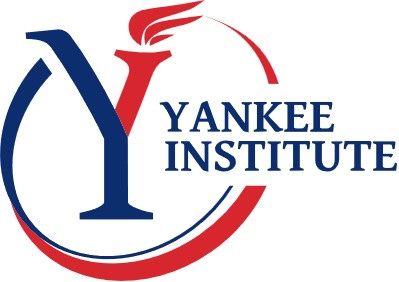Bastiat’s Window is a journal of economics, science, and culture. If you’re not already a subscriber, please sign up. (Free subscriptions are deeply appreciated, but paid subscriptions really help!) Also, share the site and its articles with friends.
What are the proper boundaries between the duties of doctors and advanced practice registered nurses (APRNs)? In a healthcare system where resources are often stretched thin, it’s an important question.
In 2014, I wrote Fortress and Frontier in American Health Care for the Mercatus Center at George Mason University. That monograph argued that policymakers ought to focus more on how we produce and deliver healthcare, rather than obsessing monomaniacally on how we structure insurance. Since then, efficient use of APRNs—nurse practitioners, nurse anesthetists, etc.—has been a recurring theme in my research and writing.
Recently, I co-authored or authored three articles that asked whether the boundaries between physicians and APRNs should be adjusted or blurred. Article #1, an extended conversation between a physician, a nurse anesthetist, and me, offers the deepest dive. #2 takes a quicker look at some of those issues. #3 has just a few paragraphs related to APRNs. Here are quick summaries of the three:
“Anesthesiologist versus Anesthetist” was published by the Knee Center for the Study of Occupational Regulation at West Virginia University. My co-authors were Nina McLain [a certified registered nurse anesthetist (CRNA) and professor in Mississippi] and Murray Feldstein [a retired urologist who “supervised” CRNAs in Arizona]. This new article is an extended conversation among the three of us.
“Using Advanced Practice Registered Nurses to Their Fullest” was published by Mississippi’s Magnolia Tribune. The focus is on how Mississippi’s healthcare system could make better use of APRNs. Its lessons are, in differing degrees, applicable to other states, as well.
“Reforming Connecticut Healthcare after COVID” was published by Connecticut’s Yankee Institute for Public Policy. Two of its policy recommendations were “Expanding Nursing Licensure” and “Offering Greater Autonomy to Nurse Anesthetists.”
Lightly edited excerpts of the three articles are found below. But beforehand, it may be helpful to watch the following four-minute video, which summarizes Fortress and Frontier (and explains why it’s called that).
And now, on to the excerpts …
Anesthesiologist versus Anesthetist
by Robert Graboyes, Nina McLain, and Murray Feldstein
A tall, unbreachable wall separates physicians and everyone else—nurses, psychologists, physical therapists, etc. A medical doctor/anesthesiologist (MD) performs similar (sometimes identical) work to that done by a certified registered nurse anesthetist (CRNA). Yet their training, credentials, licensure, privileges, and autonomy can differ sharply. Some states require CRNAs to work under the supervision of a physician, who may or may not have expertise in anesthesia. In any state, a nurse anesthetist who wishes to become an anesthesiologist will essentially have to go back to square one to make that transition—with little credit given to prior training and experience.
This physician/nonphysician distinction is deeply engrained in American healthcare, but does the demarcation serve the interests of patients? Or is it merely an artifact of physicians’ 20th century political power? (Economist Milton Friedman said long ago that the American Medical Association was “the strongest trade union in the United States.”) This article is divided into four parts:
Training, Knowledge, Privileges, Roles: How do MD anesthesiologists differ from CRNAs in terms of training, knowledge, and professional roles?
Collaborative Practice Agreements and Full Practice Authority: How do collaborative practice agreements (CPAs) work, and what do we mean by “full practice authority” for nurse anesthetists?
Transitioning Across the Wall: What would be the present-day logistical hurdles for a nurse anesthetist who wished to transition to the role of physician (medical doctor or doctor of osteopathy)?
Alternative Pathways: What institutional arrangements could expedite such transitions, without compromising the quality of care?
While the focus here is on anesthesiology, our discussion is applicable to the whole physician/nonphysician divide. For simplicity, we will refer here to physicians as “MDs,” while noting that doctors of osteopathy (DOs) serve equally in this role.
Using Advanced Practice Registered Nurses to Their Fullest
by Robert Graboyes
For decades, our national healthcare debate has focused on, “How many people have an insurance card in their wallet?” Since publishing Fortress and Frontier in American Health Care in 2014, I’ve argued that we should focus instead on: “How do we provide better care for more people at lower cost, year after year?” Many policy actions could contribute to that goal; over the years, one of the recurring answers has been, “Make better use of advanced practice registered nurses (APRNs).”
Health insurance is important. But the American political system has allowed its concern with coverage numbers to drown out conversations over who provides our care—and when, where, and how they provide it. If the supply, quality, and timeliness of care aren’t adequate, then insurance coverage can be a hollow promise. Health insurance is to healthcare what a check is to cash. A check is a promise of cash, but it’s only valuable if the signer has adequate funds in the bank. Similarly, a health insurance card in your wallet is a promise of care—only useful if there are providers standing ready to offer you the high-quality services you need.
[ … ]
That’s where APRNs come in. These are nurses with intensive specialized training and post-graduate educations. Examples include nurse practitioners, nurse midwives, nurse anesthetists, and clinical nurse specialists. They often hold doctorates, such as a doctor of philosophy (PhD), doctor of education (EdD), doctorate of nursing practice (DNP), or doctor of nurse anesthesia practice (DNAP). APRNs aren’t medical doctors, so there are many medical services that neither their training nor their licenses will allow them to perform. However, they are highly skilled at what they do, and they know what they cannot do. APRNs provide high-quality service in the areas in which they are trained. There are lots of them. And, typically, they are less expensive than physicians.
This is where it’s prudent to follow economist John Cochrane’s advice: “Look for every limit on supply of health care services, especially entry by new companies, and get rid of it.” In the case of APRNs, there are two broad ways to lower barriers to supply:
Expand licensure. Make it easier for an APRN to obtain a license in Mississippi.
Expand scope of practice and autonomy. Let APRNs do everything they’re qualified to do, and don’t require APRNs to be “supervised” by doctors.
Reforming Connecticut Healthcare after COVID
by Robert Graboyes
The nursing profession has a licensure arrangement equivalent to the Interstate Medical Licensure Compact—the Nurse Licensure Compact (NLC). A large majority of the 50 states (along with several territories) has enacted the NLC, though Connecticut is not among those states. Under this arrangement,
“Nurses holding a multistate license can practice in other NLC states/territories, without obtaining additional licenses, while maintaining their primary state of residence (PSOR). The multistate license is issued in a nurse’s PSOR, but is recognized across state lines, like a driver’s license.”
Were Connecticut to join the NLC, an out-of-state nurse practicing in another state (or other jurisdiction) would have to know and follow Connecticut nursing laws and to apply for a Connecticut license if he or she planned to remain in the state beyond some specified period. Connecticut would retain the power to revoke an out-of-state nurse’s privileges and would have the power to report violations to the nurse’s PSOR.
[ … ]
In 2014, Connecticut began allowing nurse anesthetists (NAs) to practice independently. However, NAs must practice in collaboration with a physician for the first three years of such independent practice. Some states have dropped mandatory collaborative practice agreements (CPAs), and it is worth examining whether mandatory CPAs actually improve the quality of care and whether such mandates limit the attractiveness of Connecticut to NAs. If the three-year CPA mandate remains in place, a relevant question would be whether the state ought to recognize an NA’s CPA from a previous state.
LAGNIAPPE
Gold for Goldin

A big congratulations to Claudia Goldin, one of my very favorite economists in the world. This week, she was awarded the Nobel Memorial Prize in Economic Sciences (officially the “Sveriges Riksbank Prize in Economic Sciences in Memory of Alfred Nobel”) for her truly wonderful work on women's employment and pay. This work includes some really intriguing history on female doctors, nurses, and other healthcare professionals.
Like all Nobel laureates, Goldin will receive a gold medal, diploma, and monetary grant from the King of Sweden at a ceremony in Stockholm this December.
A few weeks back, I mentioned what I always refer to as the “Goldin Rule”:
“[Goldin] says her students often cite large isolated numbers with lots of zeros as proof of something or other. (e.g., ‘That cost six BILLION dollars!!! That’s ‘6’ followed by NINE zeros.’) Goldin’s response is to pause and ask, calmly, ‘Is that a big number or a small number? And compared to what?’”
If more people—journalists and politicians in particular—understood the logic and significance of the Goldin Rule, ours would be a much better, much saner world.








Quite a lot of higher education is stuck in this model, where we continue to act as if it is AD 1350, and it is entirely plausible for a person to learn everything there is to know about every theoretical subject in 4-5 years of close study. We ignore the fact that most technical fields have expanded so much that it is only possible for a person to thoroughly grok a small sliver of it until late in the career. We train doctors who are hypothetically supposed to absorb *all* of medicine in 4 years -- and then, of course, they specialize and receive their real training as interns and residents (and sometimes fellows) in order to *actually* become experts in some area or another. For that matter, the college degree that precedes it partakes of the same delusion: you get a "general" education that farcically purports to teach you most of what is known (or even more dubiously "how to think" as its proponents put it), and even if your career intentions are already well-formed, it's not until 1-2 years into this expensive sabbatical from productivity that you even start to buckle down to learning what you'll need to learn for useful specialization.
It's very expensive, and of course inefficient, since the basic model, of the Renaissance Man who knows most everything, just in case, but necessarily specializes in order to contribute usefully to a highly specialized labor economy, is inherently mismatched to reality.
You can see struggles to change -- the very existence of jobs like PA, NP, or nurse anesthesiologist is evidence of this, as is stuff like BS-MD programs that combine a college and medical degree into one 6-year program. Or even the "coding bootcamps" that allow people to get into programming without the time and $$ investment of a 4-year degree, in which they have to write some papers on Shakespeare and the history of opera along the way.
Economic efficiency certainly suggests an expansion of the ability to specialize earlier and a recognition that measured ability in *this particular skill* needed for *this particular job* would be more efficient than requiring some bulky opaque "general competence" credential, like a degree. (There are higher-ed mavens who dream of a future in which the weighty one-size-fits-all general competence degree is replaced by a sheaf of "micro-certificates" that are each quick to earn, and focus narrowly on certain useful skills.)
But. The purpose of education isn't *just* to turn people into efficient economic cogs, it also has a human purpose. It exists to enlighten and enrich the individual human spirit. It allows us to at least sip of the heady nectar of wisdom (or at least understanding) gathered slowly, sometimes painfully, drop by drop by generations before us. If it is to be *just* job training, there is some risk of movement towards the Brave New World ideal, in which we are all bent like human bonsai towards some useful niche in the giant social machine from very early on, as soon as our stubby little fingers can click the mouse on the aptitude exams, and our chances to be free and unique are that much more hamstrung. All those kids who got into programming via bootcamps -- what if they decide in their 30s that they hate coding, and would like to write or become an opera critic instead? They have no basis at all for the switch, there is no remnant of a general education, however shallow, that can be a platform from which to launch. That's certainly efficient, because giving *everyone* a platform only a tiny minority will ever actually use is inefficient. But there's a human, spiritual cost, that should perhaps not be overlooked entirely.
I don't have any good answer to this, or even a way to assess the costs each way. I studied a lot of stuff in my school days that had absolutely no use in my career. Foreign languages, macroeconomics (ha ha), Medieval history, some odd stuff on music and religion and astronomy. All a gigantic waste of my college tuition dollars and time, in one sense. But I also cherish that stuff. I feel like having been exposed, at least, to these aspects of the vast human enterprise, makes my understanding of the world and of the human state less shallow. It never did boo to make me a more efficient producer, but it made me a happier human being, perhaps a more nuanced and interesting one.
Certainly rich people will always have the luxury of indulging any random curiosity. I hear Kim Kardashian studies law, just because she feels like it, and she can easily afford to do it for grins, because she's rich. But it would be a shame if *only* the rich were able to indulge the broad-spectrum curiosity with which we're nearly all born.
The elites - billionaires and powerful people, Hollywood types - are given a choice.
Do they choose MDs, or APPs?